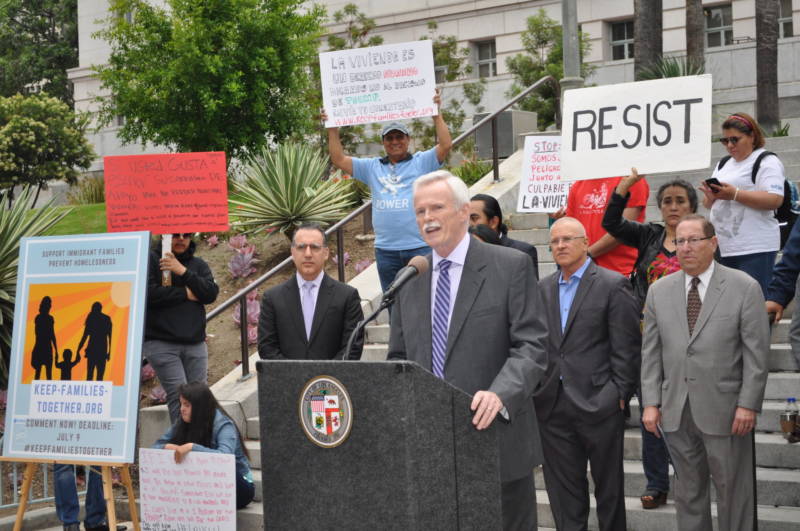Under the proposed changes, a household would not receive assistance unless every member residing in the unit is of eligible immigration status, which would force mixed-status families to live apart or to forgo the benefits. The plan would also require local housing authorities administering aid to check the immigration status of all recipients under age 62.
By law, HUD provides financial aid only to U.S. citizens, green card holders and other legal residents, such as refugees and asylum-seekers.
The agency said the proposed rule is meant to bring HUD into “greater alignment” with the law, and ensure that U.S. citizens and lawful residents are first in line for the benefits, which have waitlists of more than two years on average.
“There is an affordable housing crisis in this country, and we need to make certain our scarce public resources help those who are legally entitled to it,” said HUD Secretary Ben Carson in a statement. “Given the overwhelming demand for our programs, fairness requires that we devote ourselves to legal residents who have been waiting, some for many years, for access to affordable housing.”
In Los Angeles, the cost of evicting so many public housing residents, when taking into account the process to release units and lost rental revenue while changes are implemented, could reach up to $49 million, according to Housing Authority CEO Guthrie.
In May, the L.A. City Council approved a resolution officially opposing the proposal. And in June, Mayor Eric Garcetti wrote to Carson urging him to withdraw the proposal.

